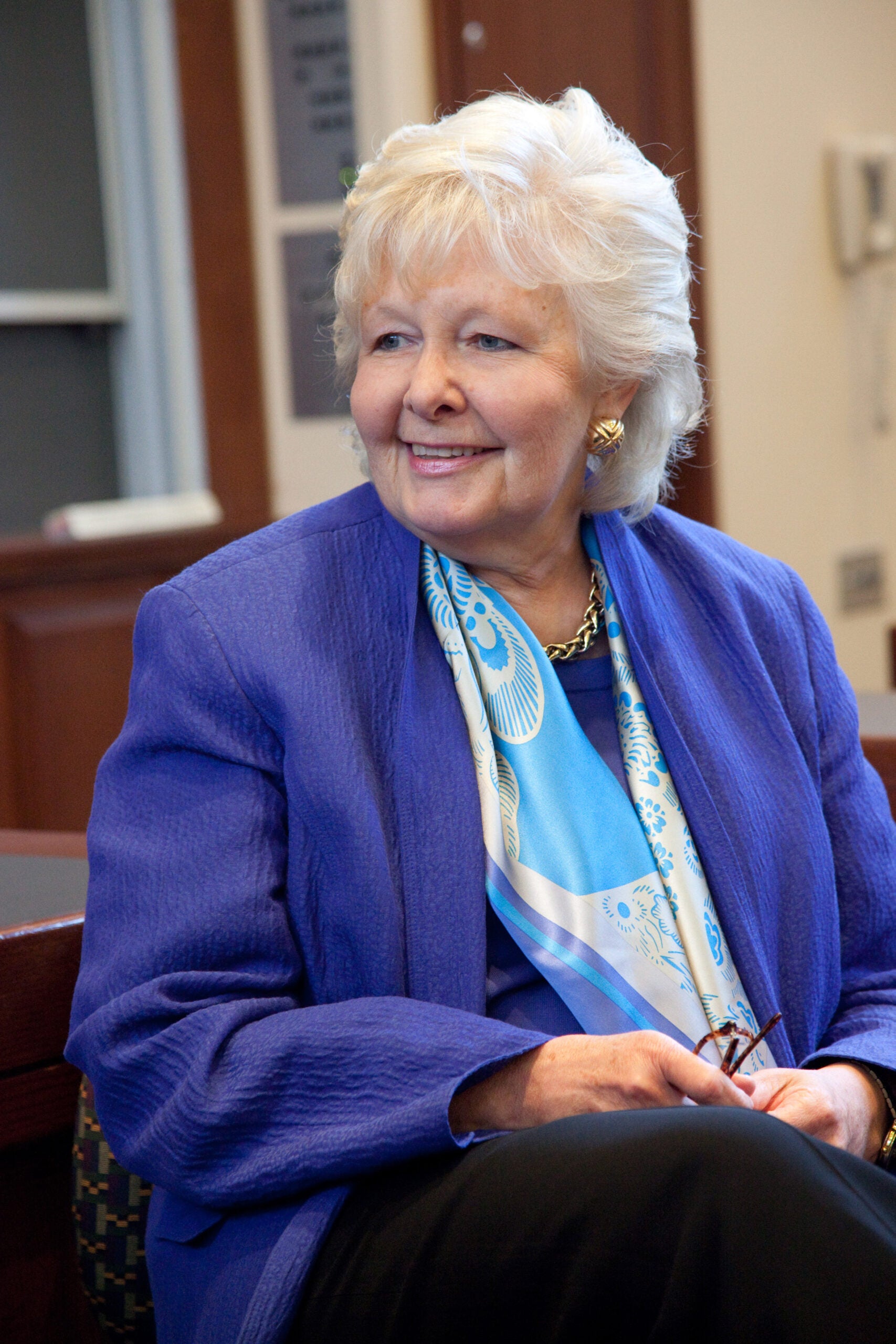Margaret H. Marshall, Harvard Law School senior research fellow and lecturer on law, will receive the American Bar Association’s 2014 Thurgood Marshall Award. A retired chief justice of the Massachusetts Supreme Judicial Court, Marshall is being recognized for her long-term contributions to advancing civil rights, civil liberties and human rights in the United States.
As chief justice of the Massachusetts Supreme Judicial Court, Marshall wrote the landmark 2003 decision in Goodridge v. Department of Public Health to allow same-sex marriage in Massachusetts.
Marshall will be recognized at the ABA’s annual meeting in Boston on Saturday, Aug. 9. Harvard Law Professor Lani Guinier will deliver the keynote address. Guinier, the Bennett Boskey Professor of Law at Harvard Law School, is the author of several books, including “The Miner’s Canary” and the forthcoming book, “The Tyranny of Meritocracy” (Beacon Press, February 2015).
The Thurgood Marshall Award, named for the late U.S. Supreme Court Justice Thurgood Marshall, was established by the American Bar Association’s Section of Individual Rights and Responsibilities in 1992.
Marshall was born and raised in South Africa under apartheid. While in college at the University of the Witwatersrand in Johannesburg, she led the National Union of South African Students, which was dedicated to ending oppressive minority rule and achieving equality for all South Africans. She came to the United States to pursue her master’s degree in education at Harvard and she later earned a J.D. at Yale Law School. In 1992, she was appointed vice president and general counsel of Harvard University, the first woman to hold that position.
In 1996, Marshall was appointed to the Massachusetts Supreme Judicial Court and in 1999 she was named chief justice of the court, the first woman to serve as chief justice, and the second woman appointed to serve as an associate justice in the court’s then 304-year history. She retired from the bench in December 2010.
She served as president of the United States Conference of Chief Justices and as chair of the Board of the National Center for State Courts. She is as a member of the Council of the American Law Institute and a fellow of the American Academy of Arts and Sciences.
